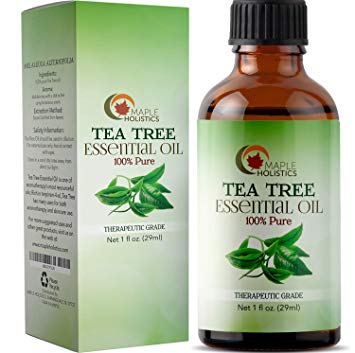Itching in private parts, or your doctors call pruritus, is an embarrassing topic to discuss and is uncomfortable and frustrating. Whereas both men and women will experience itch in their personal areas, girls are more susceptible to this downside. Genital areas are the foremost delicate areas of our bodies. And itching in sensitive areas just like the vagina and vulva is terribly uncomfortable. It will drive the sufferer insane with the constant urge to itch.
Cause Of Itching: Some most common reasons behind this problem comprise yeast infection, irritants (chemical, whether acidic or basic, coming in contact with the private parts), menopause, bacterial vaginosis, eczema, psoriasis, vulvar cancer, and sexually transmitted diseases.
5 Home Remedies for Preventing Itching in Private Parts
There is some home remedies method for preventing Itching in private parts. Which is more conformable to apply at home? Of course, you can buy medicine for itching in private parts from the market. It’s best to use medicines with a doctor’s advice. Now we discuss five home applicable methods for itching in private parts.
1. Hygiene Home Remedies For Itching
Maintaining correct hygiene prevents itch in your genital organ. Proper hygiene can prevent harmful microbes from growing within the sensitive area and causing yeast or microorganism infection.
- Take a shower daily; however, don’t wash or scrub your genital organ excessively, as causes more itching.
- After a bowel movement, wipe from front to back.
- Change menstrual pads during periods to prevent itch.
- Avoid product that has fragrances like bubble baths and detergent.
- Avoid using feminine hygiene sprays to wash your vagina.
2. Greek Yogurt Home Remedies For Itching
For mild itching, Greek yogurt is a superb natural remedy. Greek yogurt could be a probiotic because it contains live microorganisms like lactobacillus acidophilus. These microorganisms are essential to making a healthy setting in your vagina. They’ll facilitate treating an overgrowth of microbes and maintaining the pH balance.


A 2012 study revealed within the Journal of Maternal-Fetal medicine reports the effectiveness of yogurt to treat the symptoms of bacterial vaginosis.
For Topical Use:
- You’ll be able to apply raw Greek yogurt directly in your vagina.
- To apply, soak a tampon in plain, Yogurt and insert it into your vagina.
- Leave it for two hours and repeat the method twice each day till the itch stops.
For consumption: Eat one to two cups of Greek yogurt daily. However, ensure that the yogurt doesn’t contain added sugar, that induces the growth of the candida fungus.
3. Apple Cider Vinegar – Home Remedies For Itching
To stop the itch sensation in your genital organ, you’ll use raw, unfiltered apple cider vinegar too. It contains antifungal and medicament properties; therefore, it will facilitate kill the microbes that may cause an infection within the sensitive area and cause intense itch. It additionally helps restore the natural pH balance of your vagina.


Soak a tampon in a diluted mixture of equal components of raw, unfiltered apple cider vinegar and water. Insert it into your vagina for fifteen to twenty minutes. Take away the tampon, rinse the genital space with warm water, and dry it fully. As an alternative, add 2 cups of raw, unfiltered apple cider vinegar to your bath water and soak in it for about twenty minutes.
You also consume one tablespoon of raw, unfiltered apple cider vinegar and one teaspoon of raw honey to a glass of warm water. Drink it twice daily.
4. Tea Tree Oil – Home Remedies For Itching
Tea tree oil is another best home remedy for itching in private parts. Using this oil relieves itch within the genital space. It contains sturdy antibacterial properties. Tea tree oil is additionally effective in treating yeast infections.


A 2015 herbal therapy research study confirms tea tree oil’s effectiveness in stopping acute or recurrent fungal infection. Add four to six drops of tea tree oil to your bathwater. Soak in this water for ten to fifteen minutes. Try this once daily till you get relief from the itchiness.
5. Coconut Oil – Home Remedies
Coconut oil effectively treats infections in private parts, which will cause intense itch. it’s rich in antiviral, antifungal and antimicrobial properties that facilitate the fight against the growth of microbes. Also, coconut oil taken internally helps boost the immune system.


The fatty acid content of coconut oil helps to soothe fretful skin and even helps fight the vaginal condition. A 2016 study revealed in Scientifica reports that coconut oil is effective against C. albicans. Apply coconut oil around the affected space and permit it to take a seat for a half-hour. Wash it off with warm water and dry the area. Do it two times a day.
Frequently Ask Questions
What causes itching in private parts, and how can I recognize the symptoms?
Itching in private parts can be caused by various factors, such as infections, skin irritations, allergies, or even hormonal imbalances. Common symptoms include persistent itching, redness, swelling, and sometimes a burning sensation in the genital area. In some cases, there may be a discharge or an unpleasant odor. It’s essential to consult a healthcare professional for proper diagnosis and treatment, especially if the itching is severe or persistent. However, some home remedies can help alleviate mild itching and discomfort.
What natural remedies can I use to relieve itching in my private parts?
Several natural remedies can help soothe itching and irritation in your private parts:
- Cold compress: Applying a cold compress to the affected area can help reduce inflammation and relieve itching. Wrap ice or a cold pack in a clean towel and gently press it against the itchy area for a few minutes.
- Apple cider vinegar: Dilute apple cider vinegar with water (1:1 ratio) and apply it to the affected area using a clean cotton pad. This remedy can help restore the skin’s pH balance, reducing itching and preventing the growth of harmful bacteria.
- Coconut oil: has natural anti-inflammatory and antifungal properties, making it an excellent option for soothing skin irritation. Gently massage a small amount of virgin coconut oil onto the affected area, and let it absorb into the skin.
- Aloe vera: Aloe vera gel, extracted directly from the plant or purchased from a store, can be applied to the itchy area for its cooling, soothing, and anti-inflammatory effects.
- Oatmeal bath: Adding colloidal oatmeal to your bathwater can help reduce itching and irritation. Soak in the bath for 15-20 minutes, then gently pat dry your skin with a clean towel.
How can I prevent itching in my private parts in the future?
To reduce the risk of itching and irritation in your private parts, consider the following preventive measures:
- Maintain good personal hygiene: Regularly clean your genital area with mild, unscented soap and water, and dry thoroughly after bathing.
- Wear breathable, loose-fitting underwear: Opt for natural fibers like cotton, allowing for better air circulation and reducing moisture buildup.
- Change underwear frequently: Replace your underwear daily or more often if you are experiencing excessive sweating.
- Avoid using harsh chemicals: Steer clear of scented soaps, bubble baths, and laundry detergents that can irritate the skin.
- Practice safe sex: Use condoms and get regularly tested for sexually transmitted infections to minimize the risk of contracting infections that can cause itching.
When should I consult a healthcare professional for itching in my private parts?
It’s essential to seek professional help if your symptoms are severe, persistent, or accompanied by other concerning signs such as pain, discharge, or a foul odor. Additionally, if home remedies fail to provide relief or if the condition worsens, consult a healthcare professional to determine the underlying cause and receive appropriate treatment.
Can I combine home remedies with medical treatments for itching in private parts?
While some home remedies may temporarily relieve mild itching, they should not be considered a substitute for professional medical advice and treatment. If you are using home remedies alongside prescribed medications or treatments, it’s crucial to discuss this with your healthcare provider to ensure no contraindications or potential interactions. Always follow your healthcare professional’s recommendations and guidelines for proper care and treatment.
